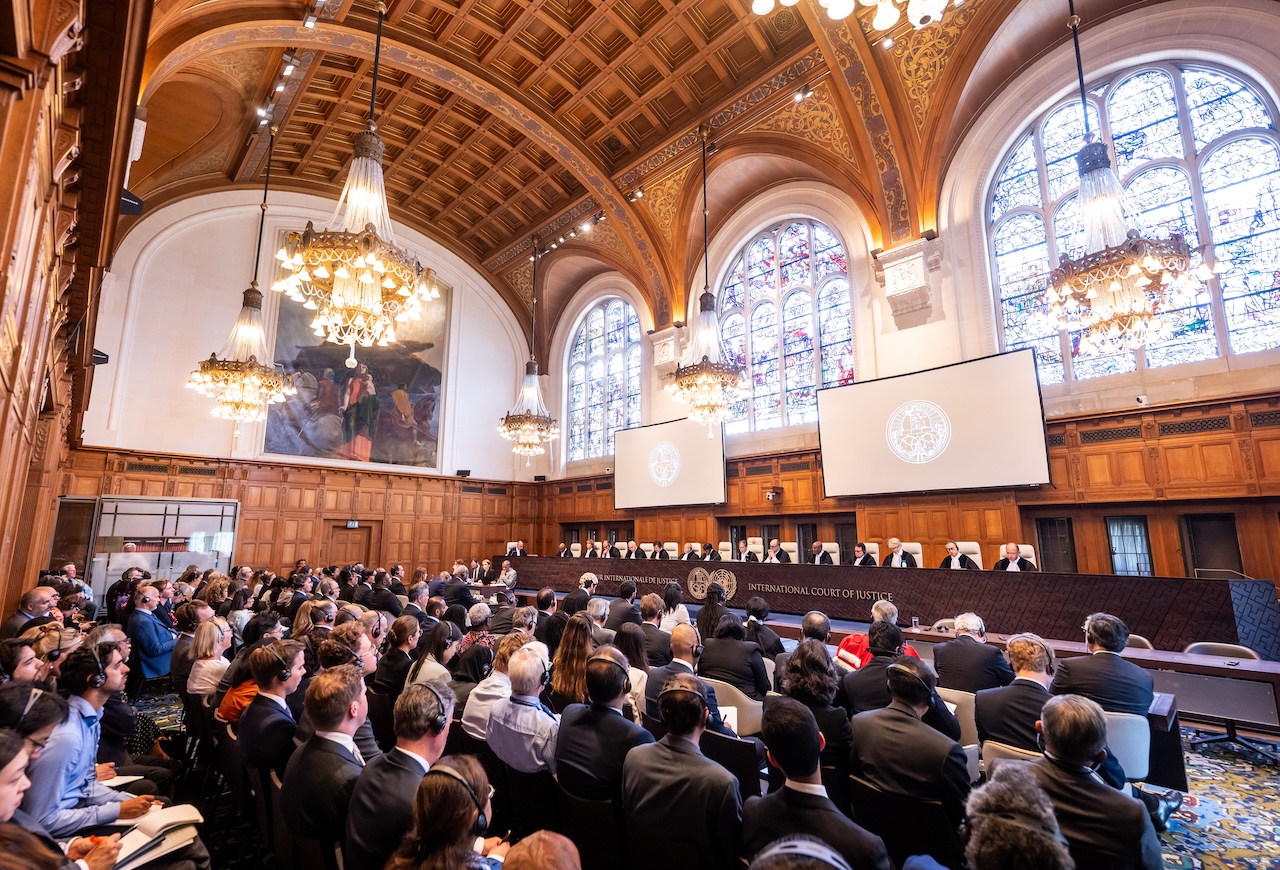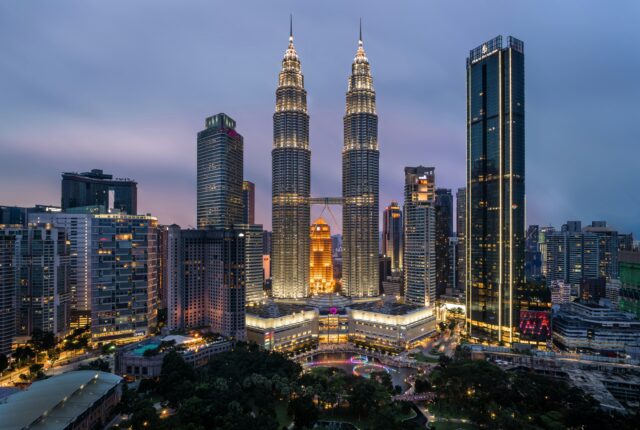Countries that are not committed to combating climate change are acting in violation of international law. That’s according to a ruling by the judges of the International Court of Justice in The Hague last week.
 ‘Obligations of States in respect of Climate Change’, reading of the advisory opinion of the court at the International Court of Justice in The Hague on 23 July 2025 | International Court of Justice
‘Obligations of States in respect of Climate Change’, reading of the advisory opinion of the court at the International Court of Justice in The Hague on 23 July 2025 | International Court of Justice
The ruling is a victory for small island states that want to hold major emitters accountable for climate change. Last Wednesday, in one of the largest climate cases ever, 15 judges of the International Court of Justice ruled that countries are obliged to prevent damage to the climate.
According to the court, industrialised countries have to take the lead in combatting climate change. They must work together to address the “urgent and existential threat” of climate change and reduce emissions.
These countries are obliged to take measures that are in compliance with agreements set out in existing climate treaties, such as the Paris Agreement, the court said in an advisory opinion. The ruling goes even further than the agreement, according to climate law expert Laura Burgers. “Countries that have not signed climate treaties must now also take climate action,” Burgers said.
“This ruling shows moral courage,” says Ali al Khatib, a lawyer specialising in public law and human rights at [Dutch law Stibbe law firm in the Netherlands. “Contrary to what certain countries have argued, the court interprets international law as imposing an obligation to set ambitious national targets. These must be accompanied by effective measures. This underlines the legal responsibility of nation states.”
Although the court’s opinion is considered to be groundbreaking, it is not binding. Nevertheless, Burgers believes that judges will refer to this interpretation in the future. “The International Court of Justice is the most authoritative court in this area,” Burgers said.
Financial compensation for damage
If countries fail to meet their climate commitments, this paves the way for countries suffering damage from climate change to claim compensation, according to the court. One condition is that there is a demonstrable link between the damage, climate change, and a lack of climate action. According to the court, this must be assessed on a case-by-case basis.
This gives countries a concrete tool to work with, Al Khatib believes. “This forms a building block for damage claims by member states that have been severely disadvantaged. The question remains, however, how the causal link will be proven.”
Will the ruling lead to a boom in climate lawsuits and damage claims? According to Al Khatib, that depends on what wealthy countries will do now. “If they pursue constructive policies, for example by setting up funds for climate adaptation in vulnerable countries or by proactively compensating for damage, it may not be as bad as expected. But if they continue on the same path, I do foresee that this ruling will be used to seek compensation from polluting countries.”
Islands swallowed up by the sea
The case was brought up 10 years ago by the small island group of Vanuatu. The country, with a population of around 320,000, is located in the Pacific Ocean, some 2,500 kilometres from Sydney, Australia. Residents of Vanuatu, as well as nearby island groups such as Palau and Tuvalu, argue that their survival is threatened by climate change.
As a result of rising sea levels, the islands are in danger of being swallowed up by the sea. The cost of keeping them habitable is rising. And this despite the fact that, according to the states themselves, they have contributed little to the growing emissions of greenhouse gases. That is why they want to hold rich, industrialised countries responsible.
Vanuatu’s appeal to the International Court of Justice is historic. Never before has this court ruled on climate change. In addition, the islands are not members of the UN General Assembly and are therefore not actually allowed to bring a case themselves. They have lobbied for years to get enough member states to agree to an advisory opinion.
Little consensus between countries
At the end of last year, the case came to an end after nearly 100 countries and 12 international organisations had been heard. The hearings revealed widely varying opinions. Unlike the vulnerable countries, rich countries argued that climate treaties should remain the basis for determining responsibility for climate change.
The judges of the International Court of Justice agree with the position of the island groups and recognise the responsibility of industrialised countries for climate change. Judge Yuji Iwasawa pointed out in the ruling that the consequences of climate change are inextricably linked to human rights. “It affects access to healthcare, water, food and safe shelter,” Iwasawa said.
According to lawyer Al Khatib, the court has struck a good balance between the sovereignty of individual countries that want to shape their own climate policy and international climate justice. “The court is not saying that emissions must stop. In addition, the economic feasibility of targets can be considered. Industrial activity does not directly lead to liability,” Al Khatib said.
This article orginally appeared in Dutch business newspaper FD on 23 July 2025.
Latest articles





